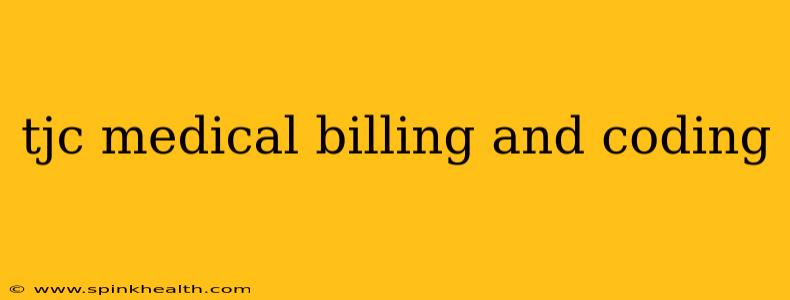The world of healthcare finance is a labyrinth of regulations, codes, and procedures. For medical billing and coding professionals, navigating this maze successfully is paramount. The Joint Commission (TJC), a leading accreditor of healthcare organizations, plays a crucial role in setting standards that ensure accurate and compliant medical billing and coding practices. This comprehensive guide delves into the intricacies of TJC's impact on medical billing and coding, helping you understand the essential elements and best practices for success in this field.
Imagine this: You're a vital link in the chain ensuring patients receive timely and accurate healthcare billing. Every code you enter, every claim you submit, impacts a hospital's financial health and, ultimately, the quality of patient care. That's the weight of responsibility that comes with medical billing and coding, especially when factoring in TJC's stringent requirements.
What is TJC's Role in Medical Billing and Coding?
The Joint Commission (TJC) is a not-for-profit organization that accredits and certifies healthcare organizations and programs in the United States. Their standards are widely recognized as benchmarks for quality and safety in healthcare. While not directly involved in the technical aspects of billing and coding themselves, TJC's standards significantly influence the processes and accuracy of these functions. They ensure that billing practices align with the care provided and adhere to ethical and legal requirements. Non-compliance can lead to penalties, including loss of accreditation, financial repercussions, and reputational damage.
How Does TJC Impact Medical Billing and Coding Practices?
TJC's influence on medical billing and coding is indirect but profound. Their standards indirectly impact billing through requirements related to:
-
Accurate Medical Recordkeeping: Complete and accurate medical records are the foundation of accurate billing. TJC standards emphasize thorough documentation, ensuring that the services billed accurately reflect the care rendered. Missing or inaccurate documentation can lead to billing errors and penalties.
-
Compliance with Regulations: TJC accreditation requires compliance with numerous federal and state regulations, including those governing medical billing and coding. This includes adherence to coding guidelines from organizations like the American Medical Association (AMA) and the Centers for Medicare & Medicaid Services (CMS).
-
Data Integrity: TJC’s standards demand robust data governance mechanisms, protecting patient data privacy (HIPAA compliance) and the integrity of billing information. This includes secure storage, access controls, and audit trails.
-
Internal Controls: Strong internal controls prevent fraud, waste, and abuse. TJC's emphasis on robust internal controls ensures the accuracy and integrity of billing processes. This includes regular audits, staff training, and monitoring of billing practices.
What are the Key Compliance Considerations for TJC Accreditation?
Staying compliant with TJC standards in medical billing and coding requires ongoing vigilance and adherence to best practices. Key areas to focus on include:
-
Accurate Coding and Sequencing: Using the correct codes, in the correct sequence, is crucial. Incorrect coding can lead to claim denials and financial losses. Staying up-to-date with code changes is vital.
-
Proper Documentation: Thorough and accurate documentation supports the codes billed, preventing audits and claim denials. Missing or incomplete documentation is a major source of billing errors.
-
HIPAA Compliance: Protecting patient health information is paramount. Compliance with HIPAA regulations is crucial and is directly impacted by TJC standards.
-
Internal Audit Trails: Tracking changes to claims, codes, and patient information is essential for identifying errors and preventing fraud. TJC’s standards support this requirement.
-
Regular Staff Training: Keeping staff updated on coding guidelines, regulatory changes, and best practices is a critical part of maintaining compliance.
How to Ensure TJC Compliance in Your Medical Billing and Coding Department?
Implementing a robust compliance program is crucial for achieving and maintaining TJC accreditation. This involves:
- Regular Staff Training: Ongoing education for coders and billers is vital.
- Comprehensive Documentation Policies: Create and maintain comprehensive policies and procedures for medical recordkeeping.
- Regular Audits and Reviews: Conduct regular internal audits and external reviews of billing and coding practices.
- Implement a robust Compliance Program: Establish a formal compliance program, including policies, procedures, and training.
- Stay Updated on Regulatory Changes: Continuously monitor changes in coding guidelines, regulations, and TJC standards.
The world of TJC medical billing and coding is intricate, but understanding its key elements is essential for every healthcare organization. By implementing the best practices outlined here, you can ensure compliance, minimize risks, and contribute to the overall financial health and quality of patient care. Remember, precision and adherence to standards are the cornerstones of a successful and compliant medical billing and coding department.

